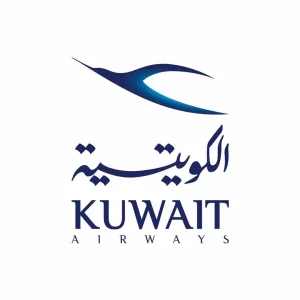

KUWAIT AIRWAYS
Kuwait Airways (KU: IATA, KAC: ICAO) is the official national carrier of the State of Kuwait.
Kuwait
Aerospace
About
People
No Entries
About
Kuwait Airways (KU: IATA, KAC: ICAO) is the official national carrier of the State of Kuwait.
On the wave of the oil boom of the 1940s, a national carrier was born in 1954. Initially, Kuwait Airways Company served a limited network of Basra, Abadan, Beirut, Damascus and Jerusalem; however, a year later the fledgling carrier was facing economic hardship, and the government of Kuwait took a 50% interest in the airline, subsequently doubling the company's capital. Having entered the rough and tumble world of aviation, the government finally took 100% share in Kuwait Airways.
Kuwait Airways entered the jet age in 1962 by leasing a Comet 4-C, the world's first jet-engined airliner. In the 1960s, the national carrier rapidly expanded its route map, and scheduled services to London began three times a week. To keep pace with fast-moving aviation requirements, three Boeing 707s were delivered in 1968. Ten years later, Kuwait Airways had an all Boeing 707 fleet of eight aircraft.
In 1978, Kuwait Airways entered the wide-body age by taking delivery of its first two B747-200s, adding a third the following year. This expansion permitted Kuwait Airways to extend its network to New York to the west and Manila to the east.
Modernization of the fleet continued, and four B727-200s were delivered in 1980-1981. Two years later, eight Airbus A310s and A300-600s were delivered, and in 1986 three Boeing 767-200ER aircraft joined the wide-body fleet.
Following the destruction of its premises and 15 of its aircraft during the Iraqi invasion of Kuwait, the airline was relaunched. Moreover, the company was restored after the Liberation of Kuwait, and a basic strategy was constituted to expand its operations around the world. After the Liberation of Kuwait until 1998, the Kuwaiti Airways fleet consisted of 17 aircraft.
In 2016, the airline was formally registered as a private company and its Corporate identity was rebranded to reflect its modernization and transformation.
On the wave of the oil boom of the 1940s, a national carrier was born in 1954. Initially, Kuwait Airways Company served a limited network of Basra, Abadan, Beirut, Damascus and Jerusalem; however, a year later the fledgling carrier was facing economic hardship, and the government of Kuwait took a 50% interest in the airline, subsequently doubling the company's capital. Having entered the rough and tumble world of aviation, the government finally took 100% share in Kuwait Airways.
Kuwait Airways entered the jet age in 1962 by leasing a Comet 4-C, the world's first jet-engined airliner. In the 1960s, the national carrier rapidly expanded its route map, and scheduled services to London began three times a week. To keep pace with fast-moving aviation requirements, three Boeing 707s were delivered in 1968. Ten years later, Kuwait Airways had an all Boeing 707 fleet of eight aircraft.
In 1978, Kuwait Airways entered the wide-body age by taking delivery of its first two B747-200s, adding a third the following year. This expansion permitted Kuwait Airways to extend its network to New York to the west and Manila to the east.
Modernization of the fleet continued, and four B727-200s were delivered in 1980-1981. Two years later, eight Airbus A310s and A300-600s were delivered, and in 1986 three Boeing 767-200ER aircraft joined the wide-body fleet.
Following the destruction of its premises and 15 of its aircraft during the Iraqi invasion of Kuwait, the airline was relaunched. Moreover, the company was restored after the Liberation of Kuwait, and a basic strategy was constituted to expand its operations around the world. After the Liberation of Kuwait until 1998, the Kuwaiti Airways fleet consisted of 17 aircraft.
In 2016, the airline was formally registered as a private company and its Corporate identity was rebranded to reflect its modernization and transformation.
Add Attachment

Share
Recent Chats
Share via email
Future: handle WhatsApp here
Future: handle LinkedIn here
Future: handle Twitter here
SUBMENU HERE
Share via Chat
Copy Link
